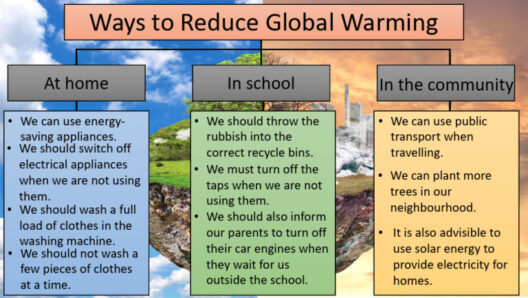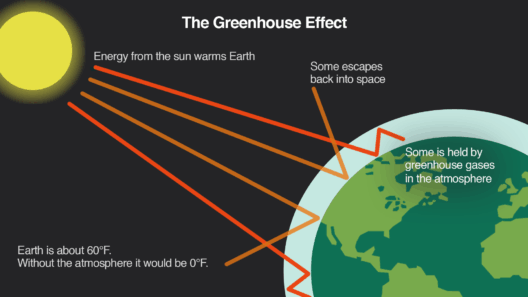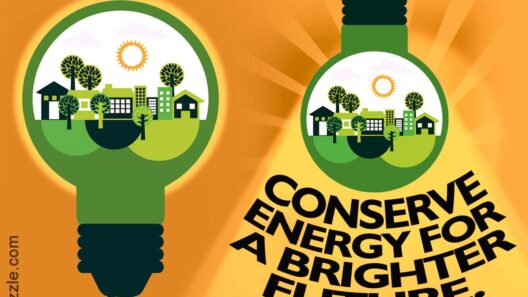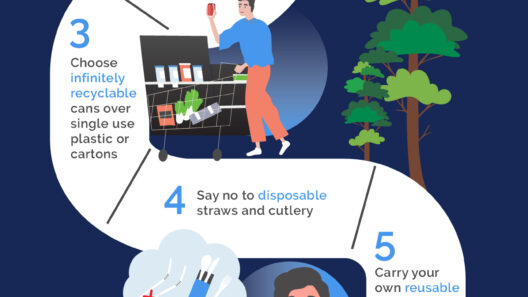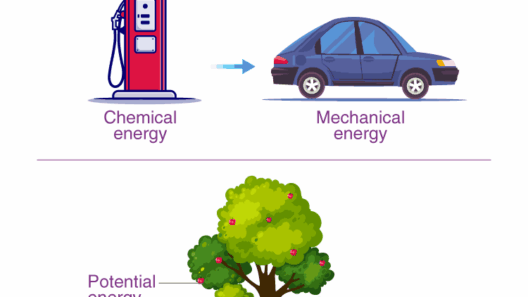In an era characterized by escalating energy demands and environmental consciousness, the phrases “energy conservation” and “energy efficiency” frequently emerge in discussions on sustainability. While these terms are often used interchangeably, they represent distinct concepts that form the bedrock of a more sustainable future. But have you ever paused to ponder: what really sets them apart? This exploration seeks to elucidate the nuances between energy conservation and energy efficiency, while also challenging us to reflect on our own energy practices.
Understanding the Crux of Energy Conservation
Energy conservation fundamentally refers to the deliberate reduction of energy use. This action stems from a conscious choice to alter behavior in order to lower consumption. Think of it as a passive approach: it encourages individuals and organizations to evaluate their energy habits critically and seek avenues to diminish waste. For instance, when a homeowner decides to turn off lights in unoccupied rooms or engages in practices such as air-drying clothes instead of utilizing a dryer, they are exercising energy conservation. This holistic approach prioritizes the more substantial aim of reducing overall energy demand.
This discipline may extend beyond individual choices to encompass larger societal initiatives. Governments might promote energy conservation through regulations and awareness campaigns aimed at altering public behavior on a grand scale. Herein lies the beauty of conservation—it requires minimal technological intervention. Instead, it pivots on the notion of behavioral changes, urging a shift in mindset towards greater environmental accountability.
Delving into the Mechanics of Energy Efficiency
On the contrary, energy efficiency is a more nuanced concept. It pertains to using technology and methods that consume less energy to perform the same function. Unlike conservation, which is about using less energy, efficiency emphasizes improving systems and devices to do more with less. For example, substituting incandescent bulbs with compact fluorescent lamps (CFLs) or light-emitting diodes (LEDs) is a prime illustration of enhancing energy efficiency. These modern lighting solutions require significantly less power to produce the same amount of light, thereby allowing energy to be saved without sacrificing comfort or utility.
Energy efficiency harbors the potential for technological innovation. Industry leaders are ever striving to develop products that harness energy in smarter, more effective ways. This aspect of efficiency often leads to cost savings over time, as individuals or organizations that invest in energy-efficient appliances may witness a reduction in their utility bills. Thus, energy efficiency manifests a technological approach toward reducing energy consumption, harmonizing performance and conservation.
Drawing the Line: Key Differences Between the Two Concepts
To better illuminate the disparity between energy conservation and efficiency, consider a succinct comparison:
• Energy Conservation focuses on reducing energy use through behavioral changes, while Energy Efficiency emphasizes the implementation of technology to improve energy use.
• Conservation might involve actions like lowering thermostat settings or turning off devices, whereas efficiency leans toward upgrading to high-efficiency appliances or systems that utilize energy in a more intelligent way.
• In terms of impact, energy conservation can yield immediate savings, while energy efficiency typically requires initial investment but promises longer-term financial relief through lower operating costs.
Both concepts play crucial roles in addressing climate change and resource depletion. However, individuals and organizations can strategically blend the two to develop a more comprehensive approach to sustainable living.
The Role of Policy and Public Awareness
Policies aimed at promoting both energy conservation and efficiency are vital for fostering a sustainable future. Governments, industries, and environmental groups often collaborate to instigate initiatives that educate the public on both fronts. Programs that incentivize homeowners to adopt energy-efficient appliances, alongside campaigns to encourage mindful energy consumption, can create a paradigm shift in energy attitudes.
Moreover, this discourse is ever relevant in addressing global challenges posed by climate change and resource scarcity. The importance of public awareness cannot be overstated. As citizens become more educated regarding energy issues, they can make informed decisions that contribute to the collective effort of reducing energy consumption.
A Call to Action: Bridging the Gap Between Conservation and Efficiency
In the face of an ever-evolving energy landscape, the challenge remains: how can we collectively harness the synergy between conservation and efficiency? By adopting both strategies, we can not only mitigate our ecological footprint but also pave the way towards a more sustainable and resilient future for generations to come. Understanding these two vital components empowers us all to engage in more responsible energy practices and fosters a culture of sustainability.



